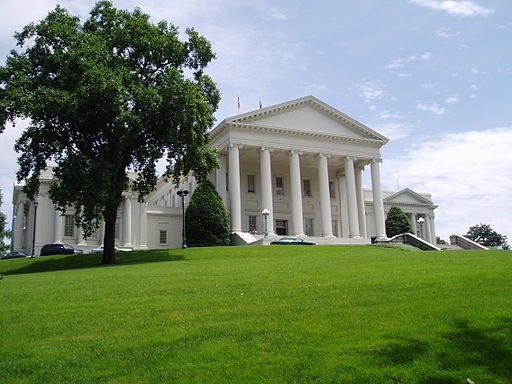Campaigns for Terry McAuliffe (D) and Glenn Youngkin (R) in the election for Governor of Virginia released new adsshortly after the major-party nominating contests came to a close in recent weeks.
Following Youngkin’s nomination on May 10, former Gov. McAuliffe released an ad titled “Virginia Forward” where he compared Youngkin to former President Donald Trump (R), saying, “Youngkin wants to bring Trump’s extremism to Virginia.” McAuliffe went on to say he would defend policies from his administration including the expansion of Medicaid, protections for reproductive rights, and the expansion of voting rights.
After McAuliffe won the Democratic primary on June 8, Youngkin released an ad titled “Time For Change” featuring one of McAuliffe’s Democratic primary opponents, former Del. Jennifer Carroll Foy, criticizing the former governor’s tenure. At the end of the ad, Youngkin described himself as “a new kind of leader to bring a new day to Virginia.” A second ad—”A New Day”—reiterated this theme with Youngkin saying he would create jobs, improve education, and make communities more safe.
Two satellite groups—the Democratic Governors Association (DGA) and the Republican Party of Virginia (RPV)—also released ads following the nomination contests. The DGA associated Youngkin with Trump and said his main priority was, “telling the same Big Lie Trump tells about the last election and trying to restrict your right to vote in the next.” The RPV’s ad used a speech given by McAuliffe interspersed with a series of news clips from the previous eight years on topics including rates of violent crime, changes to public school curricula, and a transportation company’s decision to move out of Virginia.
A recent poll of 550 likely voters shows a close race. The poll, commissioned by CNanalytics and conducted by JMC Analytics, showed McAuliffe receiving support from 46% of respondents to Youngkin’s 42%, a difference within the poll’s ± 4.2 margin of error. The remaining 12% of the respondents were either undecided or did not respond. No third party candidates were included in the poll, though at least one candidate, Princess Blanding (I), will also appear on the general election ballot.
Every four years, the Virginia gubernatorial election is one of the first major statewide elections following the presidential election. Since 1977, the state has elected a governor from the opposite party of the president in every election except for 2013 when McAuliffe was elected governor following Barack Obama’s (D) re-election. In more recent years, Democrats have won four of the five most recent gubernatorial elections and all thirteen statewide elections in Virginia since 2012.
The gubernatorial election will determine Virginia’s trifecta status. Virginia became a Democratic trifecta in 2019 for the first time since 1994 after Democrats won majorities in the House of Delegates and the state Senate. A McAuliffe victory could continue the Democratic trifecta if Democrats also retain a majority in the House of Delegates. A Youngkin victory would make Virginia a divided government since the Democrat-controlled Senate is not holding elections this year.
Learn more about the Virginia gubernatorial election here.



